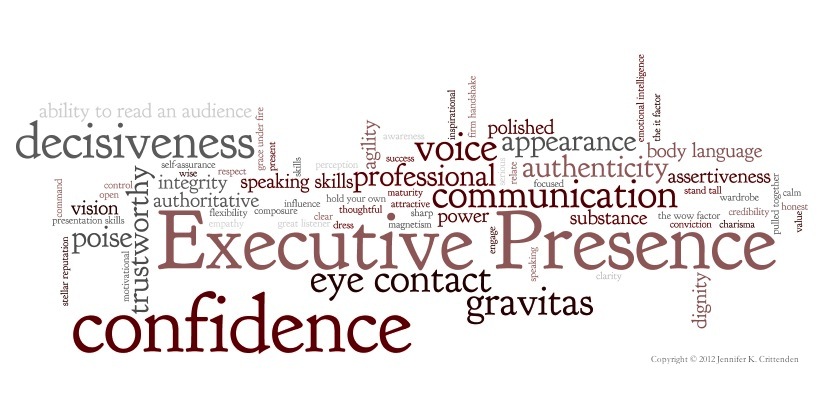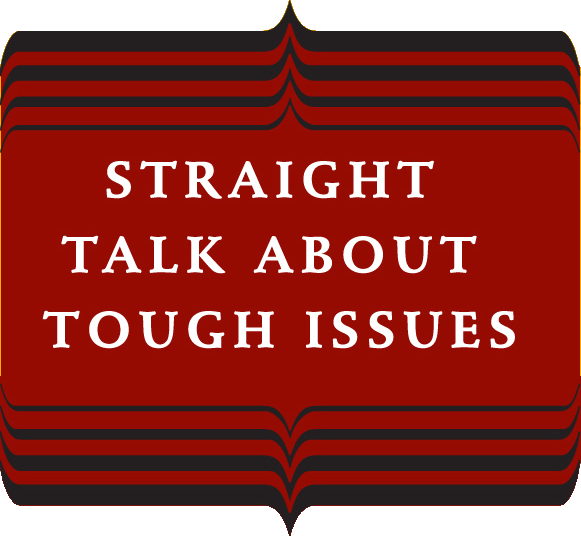I confess I was slightly shocked when a board member forwarded me this joke of the day: “I like my men the same way I like my chocolate: dark and RICH!” I’m not sure what startled me: the objectification of men, a sexist joke about men for once, or the implication that the goal would be to separate a man from his money, or all of the above. I was to discover that, like many gender issues, once your eyes are opened, you see them reinforced in many contexts and on different fronts.
In the old days, men were judged by their ability to provide, financially and otherwise, for their wives and eventual families, but surely in this day and age, when women are fully capable of providing for themselves, this was an outdated notion? Nope.
Surveys indicate that men pay the majority of the time when they go on a date with a woman. Only a few couples go dutch, and the woman pays rarely, usually only for special occasions. I suspect that women may pay more frequently but are too embarrassed to admit it in a survey. As a society we seem to think there’s something suspect about a woman who would be willing to foot the bill, as though it’s only one small step away from hiring a gigolo.
Imagine a certain seventh-grader who was informed that if he asked a girl to a movie, he would be expected to pay. That didn’t come from me, by the way, but from a fellow middle-schooler who, when they were discussing the logistics and ramifications of asking this particular girl out, reminded him, “You’ll have to pay for her, you know.” “I know,” the seventh-grader said, as though only a noob wouldn’t know that. They didn’t seem happy about it, since both are a bit miserly, but apparently it was literally the price you had to pay to get a girl to go out with you. Curious as to the girl’s reaction, somewhat hopeful she would have shot down these traditional gender roles, I quizzed him later. He reported that the date had turned into a group date, and everyone paid their own way.
It all seemed a bit awkward and a little sad, and I wondered how many dates haven’t happened because the boys lacked the resources to pay for both themselves and their dates, and how many girls would have been happy to chip in to make the date happen. These seem like issues we should have gotten past a long time ago.
Nevertheless, these mores are widely accepted and don’t seem to be abating very fast, so the rules are even more entrenched with older generations, like mine. Certainly some men enjoyed demonstrating their generosity, and my occasional attempts to pay for dinners or movies would be batted away as so much silliness. Far from criticizing this old-fashioned behavior however, several modern men’s dating sites equate paying a lady’s way with being a gentleman. “True gentlemen pay – it’s the honorable thing to do,” one announces. Other sites use words like “chivalry,” being “a guy,” being “gallant,” and “showing some class.” One advice giver, after a long discussion, finally concludes, “You can never go wrong by paying.”
As with other social mores, it is tempting to write the whole issue off as harmless and a way of making our interactions less awkward. Certainly it’s easier for the waitperson to simply hand the bill to the man, skipping the strained exchange of “Let me….” “No, no, you shouldn’t….” “How about the tip then…” There’s no harm in it, right? One woman wrote that when a man pays for her, she feels “cherished.” That can’t be bad, right? As a lifelong troublemaker, I have to say, “Not so fast.”
Money is a substitute for power in many situations, so there are several unspoken messages being communicated when the guy pays. Most innocuously, he’s a standup guy; he knows he’s expected to pay; and he’s willing to spend some money to demonstrate that he understands social conventions. On another level, it’s a sign that he is financially self-reliant, and even generous. One level deeper, it shows he could provide for himself and perhaps others. One level deeper still, as women are often aware and as is sometimes made semi-explicit by the man, there is an implied obligation on the part of the woman to do something in exchange: be grateful, be nice, permit a kiss, or provide more intimate rewards. And most crudely, he’s a sugar daddy, and it’s an open exchange of sexual services for goods, a slightly refined form of prostitution.
Changing Times… or Not
Perhaps 2015 is the year we began to wake up. The Guardian ran an article in April for which they interviewed five New York guys about their experience dating women who paid (or didn’t). They reported that women never paid on first dates, and even after several dates, it was the rare girl who even did the “reach,” made the pretense of reaching for their purse. The reaction from readers was ferocious. The article drew 1568 comments, and many of them were vitriolic, people shouting back and forth about whether or not men should pay. The hostility in the comments provided a window into how the genders view each other. Sadly, the war between the sexes is alive and well.
Many commenters reported their own experiences, which were pretty consistent: women rarely pay. One guy said, “it just seems right,” while others tried to explain the niceties of figuring out who should pay: Is it just drinks? Should they split the bill? Can they alternate? Some maintained that the party who did the inviting is the one who should pay, but others argued that never works because guys are always expected to make the first move, especially on online dating sites. Many men complained that dating was a “pay-to-play” game in which men have to pay upfront to maximize their chances for “success.” Some women posted that men should pay because women have to spend so much money on their appearance getting ready for a date—you can imagine the furor that invoked. In the midst of the frenzy, one clueless latecomer asked, “Who cares?” “Everybody in the world but you,” someone responded.
There were also a number of male commenters who pointed out the hypocrisy of women who claim they deserve equal rights but never offer to pick up the check. And in some cases, their resentment at being treated like an ATM was palpable. Some accused women of frequenting online dating sites just so they could go out for a nice meal. Others were more measured, more surprised by the fact that women never paid, and curious about the phenomenon. “It’s very backwards,” said one of the dating bachelors.
Incidentally, this appears to be an American phenomenon. Guys and girls from the U.K. and European countries were appalled by the article and explained that women in their countries weren’t that stupid/greedy/ridiculous. It appears to be yet another piece of evidence that, despite all the progressives who live in this country, gender equality is not as advanced here as it is in other countries.
Later that year, Erica Garza posted a blog titled “5 Reasons It’s Not OK to Make the Guy Pay.” She explained that looking back at her behavior a decade before, when she would never have thought of paying her own way, she now recognizes the lack of logic in the excuses she would have given, if she had questioned her motives back then. Acknowledging that she was making a good salary and in potentially better financial circumstances than her date, it was simply expedient for her to ignore the check and look the other way while the guy paid. She also confesses that in her youth, she selfishly thought that somehow she deserved it as though time spent with her was worth paying for. All of these questionable justifications just embarrass her now, and she closes her article, saying, “By expecting a man to pay simply because he is a man, I was inadvertently maintaining a history of repression, where men are viewed as in control and we women are still viewed as helpless..”
How big is your…?
If I can take the liberty of speaking up for the guys, there’s a dark side to judging a man by his wealth. It’s not easy to become rich, and having someone’s worth measured by the size of his wallet seems disrespectful, even hurtful. Neal Gabler, a writer for the Atlantic Monthly, compared financial insecurity to sexual impotence, and a financial psychologist confirmed, “You are more likely to hear from your buddy that he is on Viagra than that he has credit-card problems.” In America, winners are flush with cash, and those without bulging pockets are… well, losers.
Even those with money are often aware that they didn’t “deserve” to be rich and are conscious of the amount of luck involved with wealth (well, some of them at least). Rich people are often suspicious of their acquaintances and wonder if others want to be friends only because of their money. And for the guys who weren’t so lucky, they know that riches are distributed unevenly and capriciously in our country. It must engender an acute sense of injustice when a nice guy realizes that some rich schmuck is considered a more valuable catch. When told that a certain woman wouldn’t marry a certain guy because he didn’t make enough money, a friend said sadly, “What about love?”
It’s also insulting to women to assume they are brainless money grubbers who value a guy only for his money although there do appear to be some not insignificant numbers of women who are brainless money grubbers. A wealth management firm surveyed women about their willingness to marry “someone you like, if they had money.” Two-thirds of responders said they were “very” or “extremely” willing to do so. So much for love.
Closer to home, a CEO I knew was suddenly widowed, and news of his availability spread rapidly. To his astonishment, he was flooded with overtures from women interested in becoming the new Mrs. Women were literally calling him at work to invite him out because they didn’t know his home number. Granted he was a decent person, but it did appear that his biggest appeal was his wealth. It made him understandably uncomfortable about re-entering the dating world.
And women aren’t the only ones victimizing men. Never shy about exploiting sexual stereotypes, advertisers love to equate sex with money when marketing products to men. Advertisements brandish the promise of sex when promoting accoutrements of wealth, like expensive cars and watches. The exchange of sex for goods is particularly marked in Valentine’s Day ads when men are counseled to bring home expensive presents in exchange for sensual rewards later that night. Despite the pretty pictures, it feels indeed like one small step away from prostitution.
So, let’s turn men back into human beings and stop treating them like johns or chocolate. It’s a sign of real disrespect to take advantage of a guy’s money as though that’s the prerogative of our gender. Liberating ourselves from the expectation of sex for goods means also liberating men from having to pay for us. Real ladies pay their own way.
©2016 Jennifer K. Crittenden





 Ten 90-minute individualized sessions. Private and confidential.
Ten 90-minute individualized sessions. Private and confidential.


Balaus
/ August 19, 2018Tales of a male academic in the humanities. When I dated a colleague (at another institution) who was an assertive feminist, she dumped me because my tenure prospects were thin. When I went online, my sense of humor got me nowhere. On the contrary, the false profile I put (and took out after 30 min.) of a retired CEO in his seventies, widowed, living on the Upper West Side and owning his house in the Hamptons got immediate and unsolicited responses. Recently, I got two marriage proposals, both from women in poor health who needed someone to take care of them. Those who cannot dig gold, end up digging pennies. I recommend chastity, if you can take it.
jeff
/ September 29, 2018That is a disheartening tale, but sadly it rings true. I hope you don’t give up on all women, but I feel your pain. I’m especially sad that your sense of humor got you nowhere. Gee!